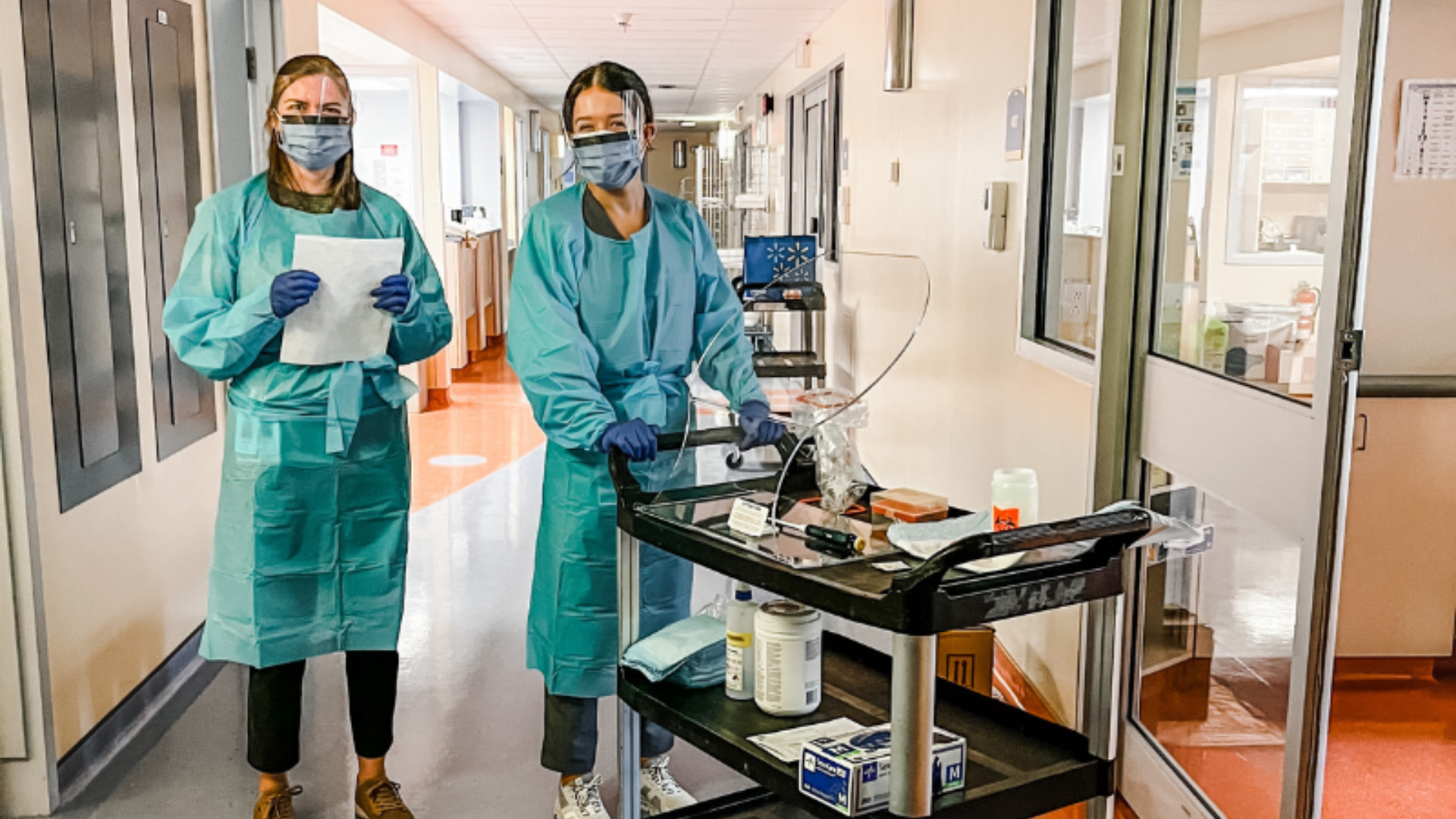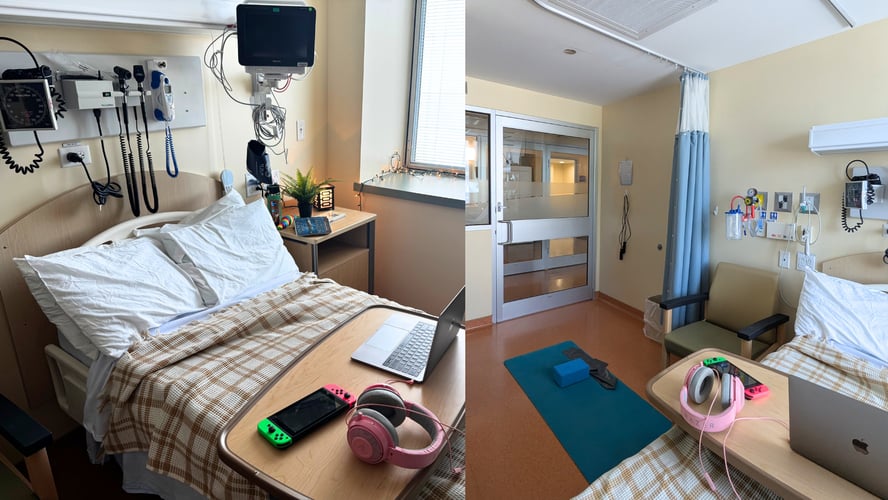Above: The CCfV Challenge Unit in Halifax.
The CCfV Challenge Unit is a specialized research facility – the only of its kind in the Atlantic provinces, and one of only a handful worldwide.
Located at the IWK Health Centre in Halifax, N.S., the Challenge Unit was built to contain airborne bacteria and viruses. It provides an important space for challenge studies, a type of research where healthy adult volunteers agree to be exposed to a virus or bacteria.
Challenge studies let researchers learn more about how our immune systems fight infection. They can also study how a germ infects us or how a vaccine protects us.
Why do we need the Challenge Unit?
The Challenge Unit is designed to prevent airborne pathogens (viruses or bacteria) from entering or leaving the participant’s room. The Challenge Unit keeps those pathogens contained so others won’t catch the disease being studied.
This environment is also ideal for monitoring participant wellbeing. The Challenge Unit has 10 private rooms where volunteers stay during part of a challenge study. Participants have their daily needs and any accommodations attended to by expertly trained medical staff who are available 24/7.

More About Challenge Study Safety
Participants are monitored by nurses or doctors during a challenge study. They get a treatment to clear up the infection before symptoms become severe (or when they are ready to leave the challenge unit).
Learn more about safety and wellness in challenge studies.
How a challenge study helps us learn about infections
There are other types of studies we can use to learn about disease, vaccines, or the immune system. Why choose challenge studies?
- Challenge studies help us learn how pathogens and the immune system behave with more accuracy. Researchers can control which strain of the virus or bacteria participants are exposed to and when. In the Challenge Unit, they don’t have to worry as much about outside influences (such as the person catching a different disease).
- Challenge studies can be more efficient than clinical trials. Researchers often use clinical trials to study how well a vaccine protects against infection. In clinical trials, they compare vaccinated and unvaccinated groups who come in contact with the disease in their day-to-day lives. Exposure to the disease is random. In a challenge study, exposure to the disease is planned. This can save time.
- Challenge studies provide more complete information. When participants are on-site in the Challenge Unit, researchers can collect multiple samples every day. This gives them more data than samples taken days or weeks apart. Studying an infection in the human body, in real time, also gives a more complete understanding of the human response to infection than studying animals or cells in a lab.

Making a difference
Challenge studies are making important contributions to a healthier world.
Want to help us make a difference at the Challenge Unit? Find out how at challengeunit.ca



